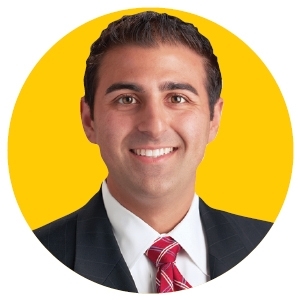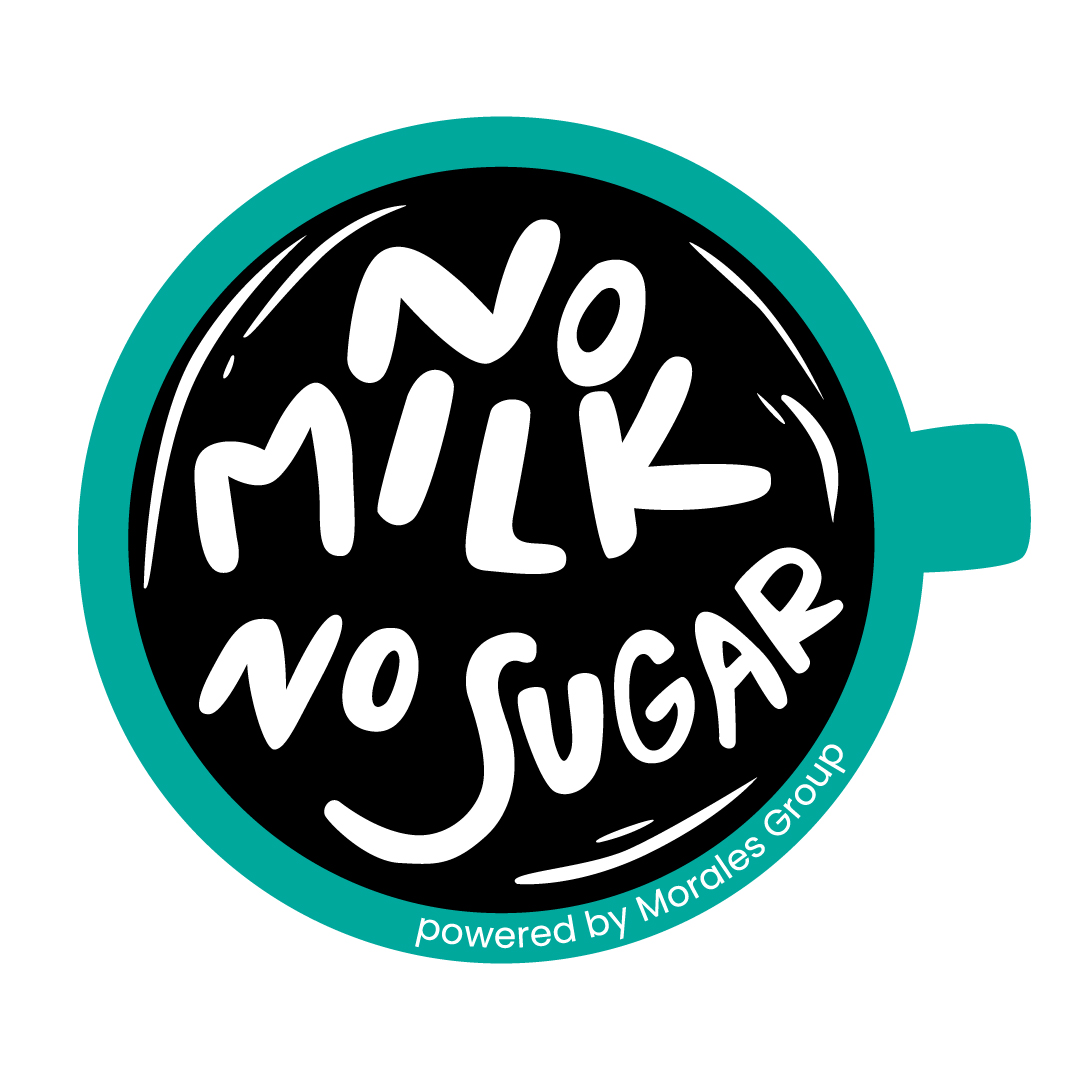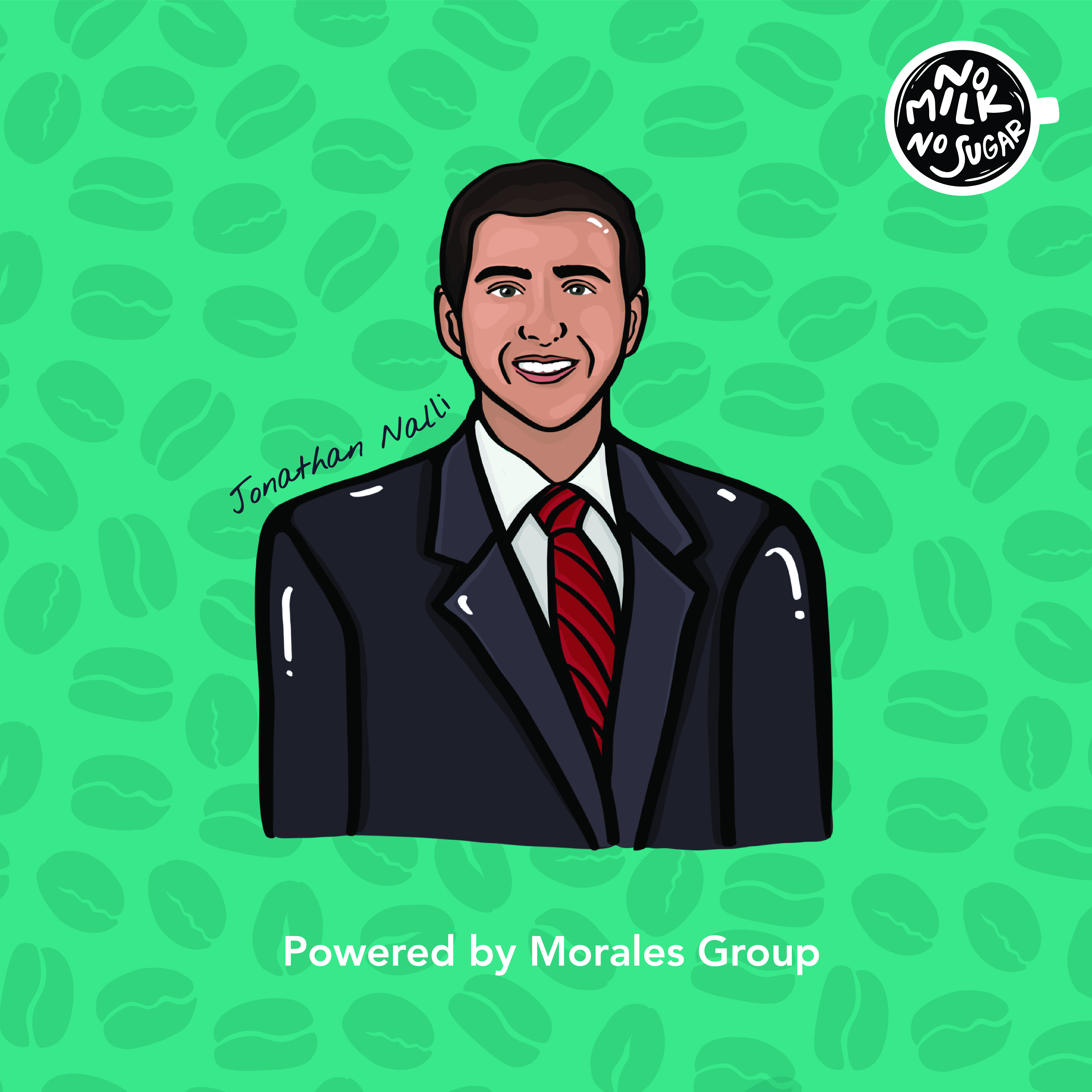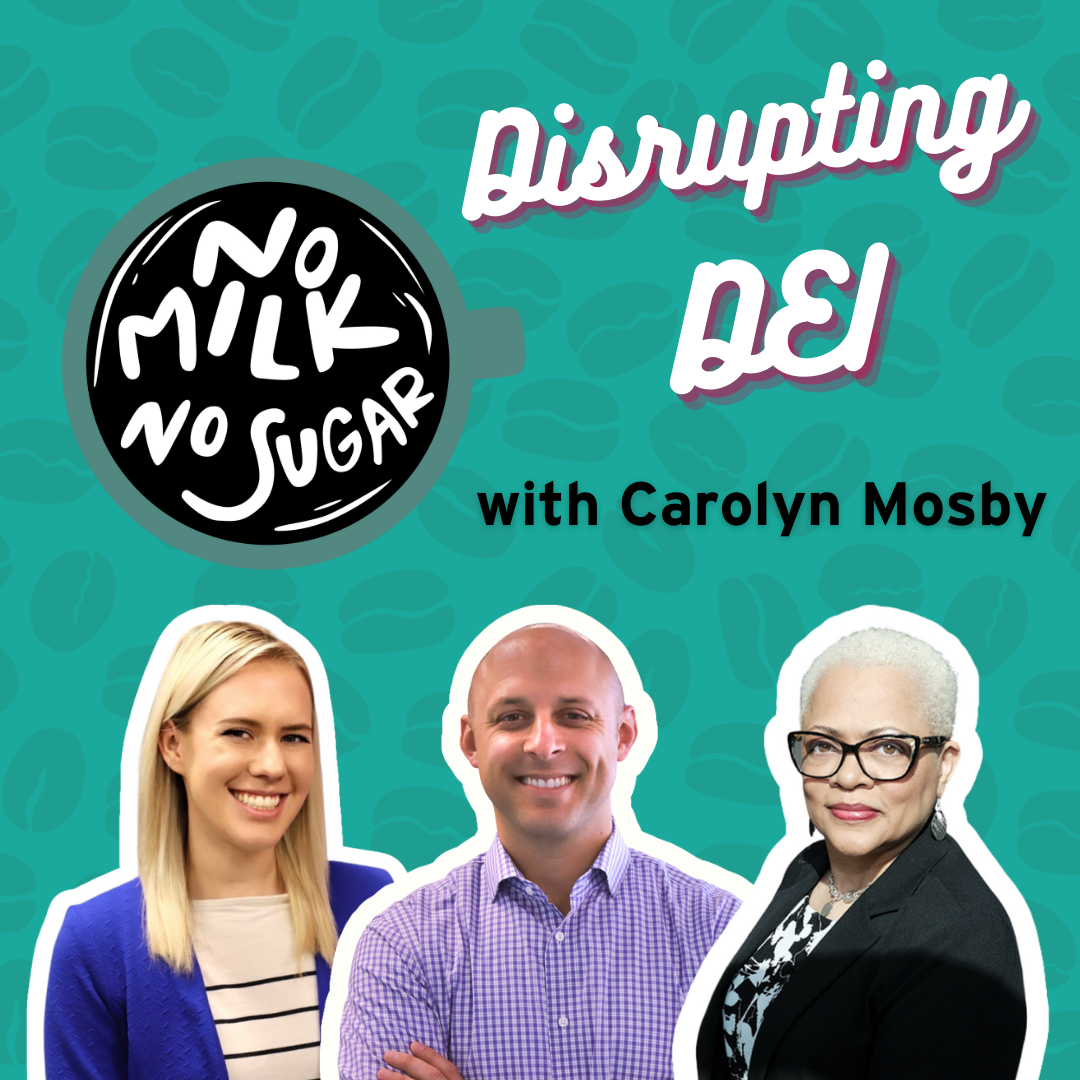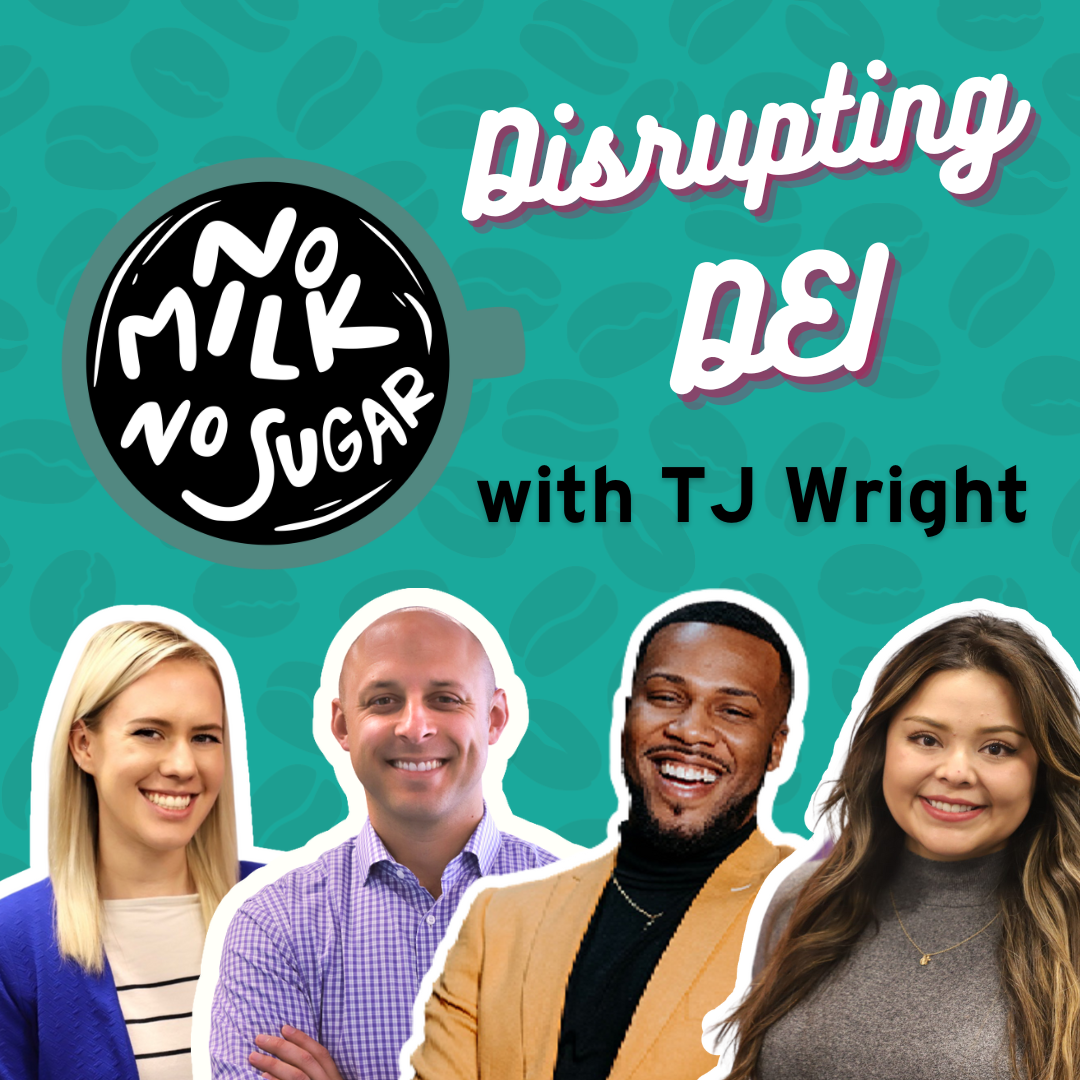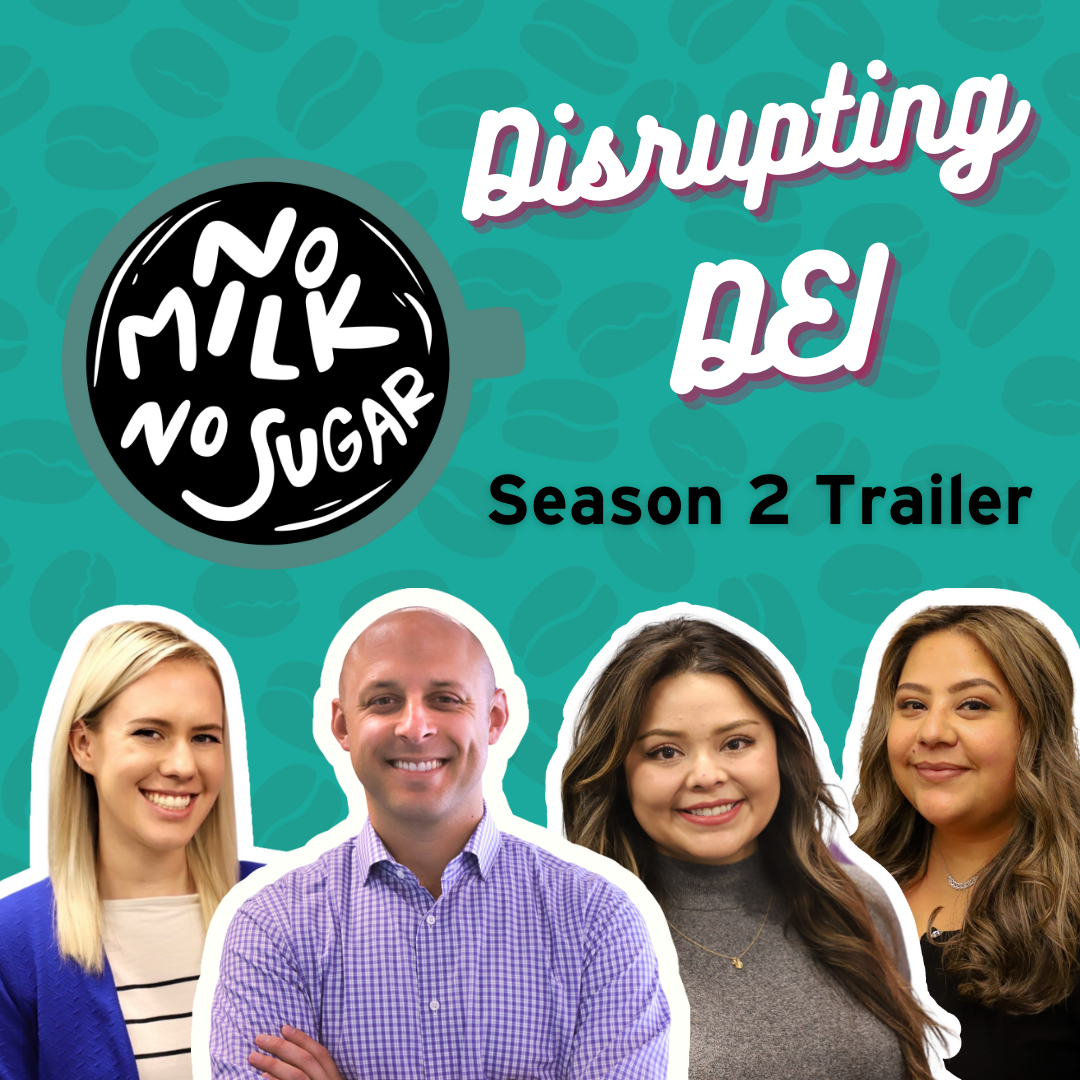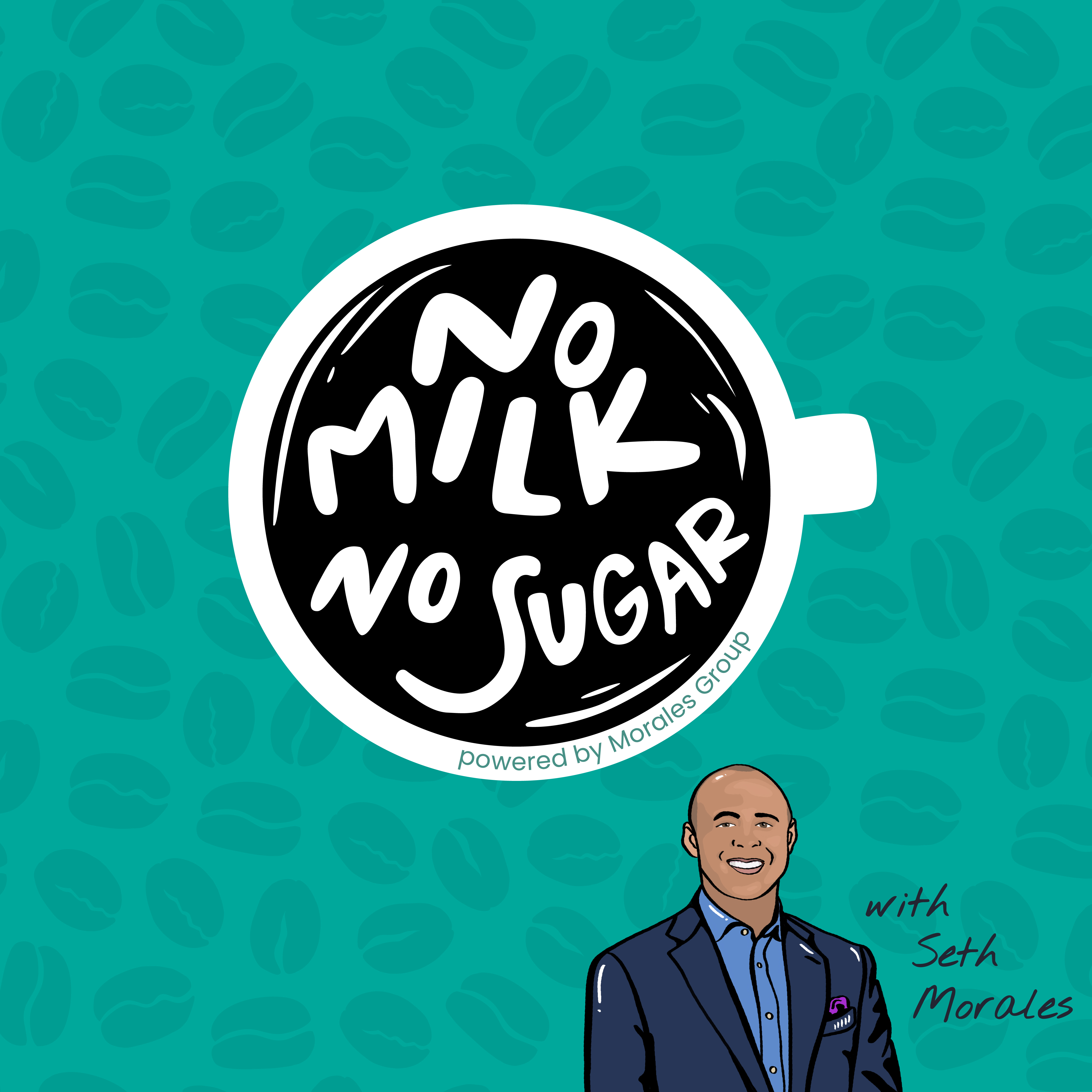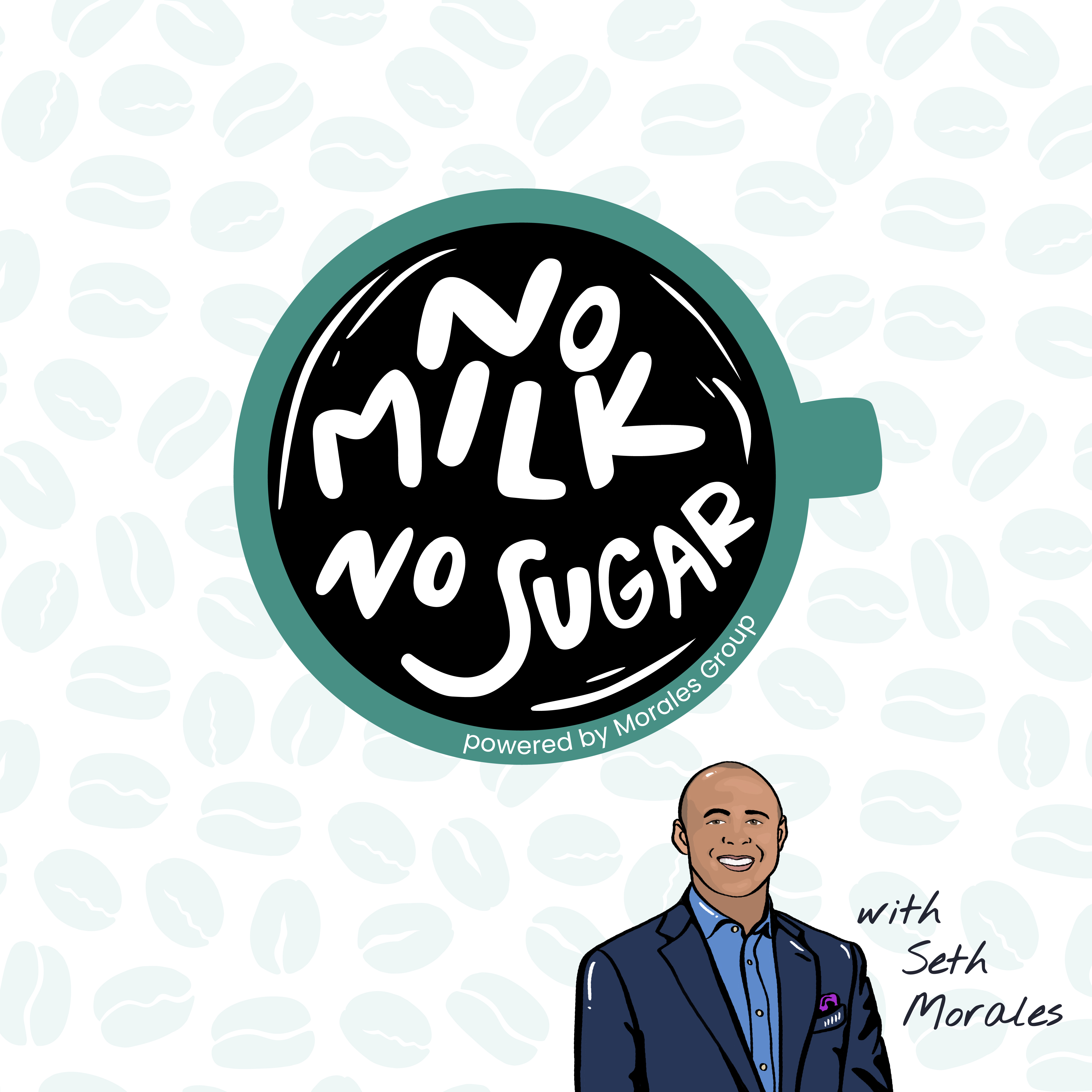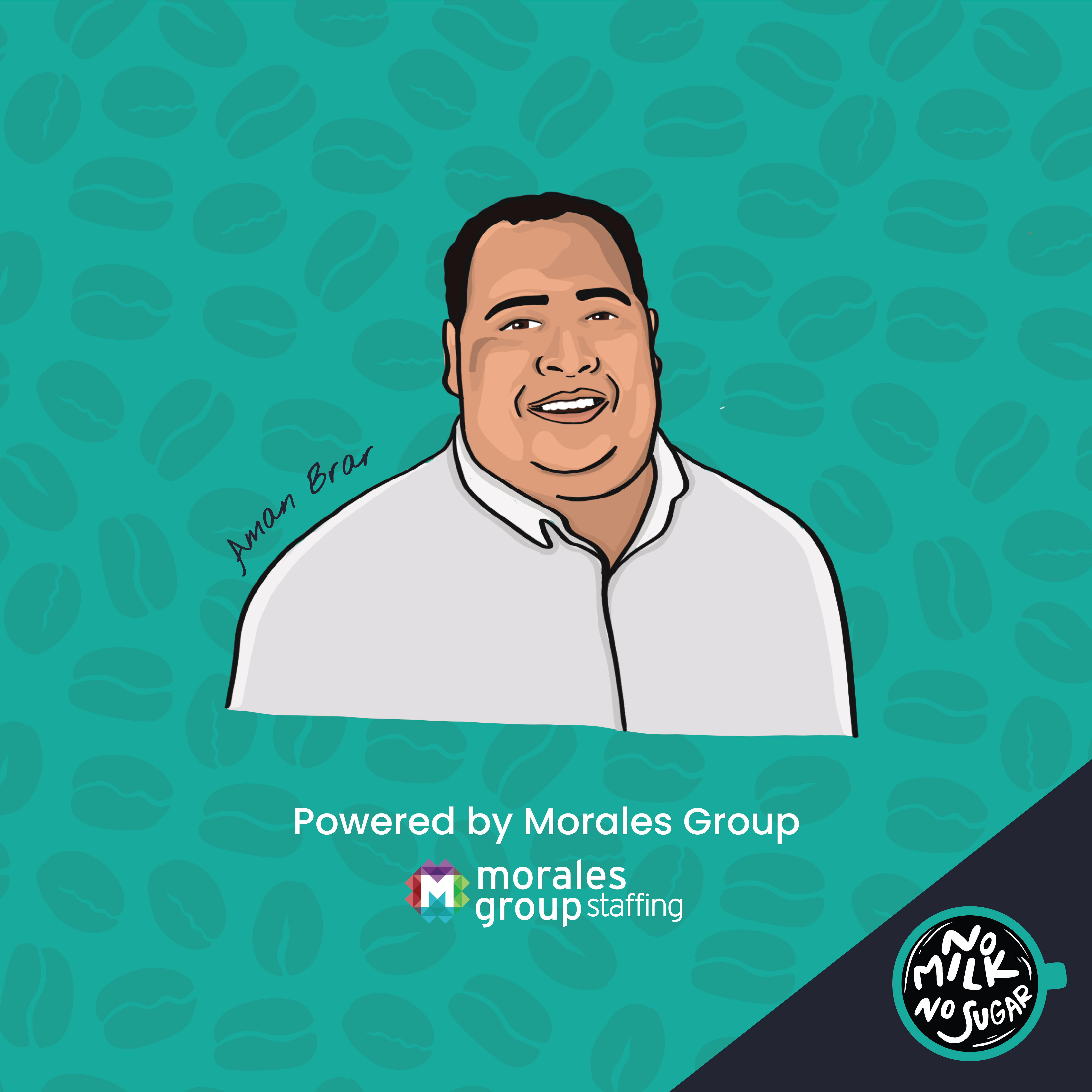Pressure is Privilege, with St. Vincent's Jonathan Nalli
- 0.5
- 1
- 1.25
- 1.5
- 1.75
- 2
Waitress: I've got a coffee for Seth, no milk, no sugar.
Seth Morales: Right here. Thank you.
Tori: You're listening to No Milk No Sugar, the podcast about business beneath the sweetener powered by Morales group and hosted by CEO, Seth Morales. We talk to local movers and shakers, but what can be the harsh reality of doing business? We cover what no one likes to advertise, but everyone wants to hear. I'm Tori, producer of the show, and today, Seth will be talking to Ascension St. Vincent CEO, Jonathan Nalli.
Seth Morales: Welcome. Welcome to the show, Jonathan. We're excited to have you on No Milk No Sugar. I'm going to give you a little bit of context just on our connection point. Jonathan and I met a couple of years ago. He was gracious enough to extend an opportunity for me to join the board of St. Vincent's Health for Ascension, for the state of Indiana, which is a 20 plus hospital system and he's got over 14, 000 employees under guidance. And Jonathan is chief executive officer, CEO, of St. V. So really excited to have him here today. And the reason why I think this is phenomenal for No Milk No Sugar, what you just went through over the last year with the pandemic and being in a pressure cooker situation, it's key, man. And I'm really anxious and I hope everyone gets some value out of what you've been through. But I think about the theme for today is pressure is a privilege and you've definitely been in that. Here's the first question I want to ask you. What did you learn about yourself as a leader during this pandemic?
Jonathan Nalli: It's almost multifactorial and I appreciate the opportunity to talk about it because it's cathartic for me and it's almost some therapy for me because is what we're moving through in a vaccinated world, we're now going to encounter the post- traumatic stress of those who are in healthcare, but even those who were not in healthcare, but had to drastically alter their home situation, work situation, workplace situation. And so this is cathartic for me because it gives me a chance to have a little bit of Morales Group therapy session.
Seth Morales: Yeah, that's good, man. I love it.
Jonathan Nalli: And what's interesting, I learned a lot about myself in that... I remember my first opportunity when I was home for about four days. And I'd be in my home office and I'd come out at 11:00 and the kids were starting homeschool at that point in time, based on e- learning. And I was sitting at the counter reading my phone or my computer, or on a call and the kids were," Mommy, mommy, mommy, mommy, mommy." And I would just kind of get up 20 minutes later, walk back into my office for my brunch break. And that night Kathleen shared with me. She said," Do you not hear them talking?" And it was a realization of, I've got to meld my two worlds together really fast, for the sanity of my family and what I needed to do. So that was one. The second part was, how do I need to get comfortable in a different environment, but yet still as you would say, the field general for the state of Indiana for Ascension St. Vincent's, how do I provide the directives, but be seen and be heard and understand what's going out in the field, the real field of battle, what you're dealing with and how I needed to adjust that? And then lastly was how I needed to truly think in a longterm pandemic. I've had power outages at hospitals. I've had snow outages. The longest you ever dealt with, it was maybe five, six days. And we talked about this at a board meeting. Never have I dealt with something that's 367 days and counting. And that was something you had to learn real quick, what's the parallel for the current situation? But then immediately... And Terry Metzger, our CFO at the time, now COO, was given the task of," All right, Terry help us understand, what's our path forward in light at the end of the tunnel strategy look like, so that we don't find ourselves at the end of this, and then trying to understand what that next phase looks like?" And so it was truly driving those at the same point in time, versus a normal methodical planning process of a one- year, or three- year or five- year seven- year type of guidepoint. It was, we have to do this at the same time, or we're not going to be able to assist the community in the way we should.
Seth Morales: I love it. No, that's a really good point about longterm thinking and then also being agile and adapting at home. I just think about your role, man. There's probably a handful of roles in the state that were as high pressure as yours. I think about Governor Holcomb, right? He's got a ton of responsibility. Opening, reopening. You were on the phone with Holcomb a lot and with some of the hospital leaders. But at the time I remember we had some board meetings and St. Vincent's Indianapolis 86th Street and I think IU downtown had a lot of the COVID surge initially. So there was a ton of pressure early, early on for you. What didn't work as you got into it? Any quick fails or flops that popped out early, that you were just like," Man, if I could go back, I would do this differently."
Jonathan Nalli: Here's the great part. There wasn't a great deal of missteps. And it was funny. Dennis Murphy and I and a couple other healthcare leaders were on a call with the 500 Festival, talking about this past year and he and I were joking, in that it was the year anniversary, when the governor calls me and says," Hey, you guys want to come to my office tomorrow at 10:00 AM," and you say," Absolutely." And so it was the governor and it was Dr. Box and Dr. Sullivan and Dennis and myself and our top docs and folks. And he said," All right, guys, how are we going to handle it? How are we going to handle it for the state of Indiana?" And so Dr. Sullivan with FSSA, and Dr. Box with ISDH, they're truly the generals working under Holcomb that Indiana has seen the success of that. And if you look at missteps, the only missteps we had, I don't think we could have avoided because it was what type of enemy are we dealing with? It was a ghost, right? It was a ghost we couldn't understand and didn't know much about. And so it was, you were trying to throw everything at it from coordination of care, to even, at the time, we were talking about, "Well, if we have these plexiglass boxes, when we intubate a patient, will that help not aerosolize viral particles?" And it was, "Well, no, that doesn't work, now we know it." And if you understand that, it was then, "How are we collecting data as health systems, large health systems, getting it to the state, understanding the data?" And it was merely almost a process of elimination. And at times you're pulling your hair out because you're saying, "How can we not do this? We're a highly educated society. We've got great state resources." And it was a lot of that. But what came out of those -- I wouldn't even call them missteps -- it was just almost the, "What are we trying? What are we going to try? What's next?" I mean, it was literally daily phone calls for, gosh, I mean, it was 24/7 for probably, I don't know, 10 weeks, 12 weeks with it. And so I wouldn't know if I'd call them missteps, but just, I mean, we were trial by error. Trial and error, trial and error, trial and error. And that's what led us, I think, to where we are today.
Seth Morales: No, that's rich, man, when you think about... I love your analogy of," It was like a ghost. It was like this phantom trying to catch." Doing that process of elimination was definitely, I could see that. I could hear that, especially sitting on some of these board calls, you were open to whatever and being real flexible and nimble, to trying a lot of things. What about the healthcare system, the healthcare team being on the front lines and going through a lot? I'm sure you've had this question, but just mental health- wise, as a leader, what are some things that you've learned or that you guys are all doing to support those nurses that were on the front lines, that have been through a lot, that are worn out or that have had mental fatigue or are exhausted? What comes to mind for you with that question?
Jonathan Nalli: That's where you could almost say that was one of the learnings or was it a misstep or just a trial and error, was how do we support them, right? It was, you didn't understand what our associates... And if you look at those frontline caregivers early on, you have nurses and you have respiratory therapy and you've got even just the registration folks who are dealing with people who," Do I have COVID? Do I not have COVID? I have a temperature? Is this temperature different than what I've had it in the past?" And so it took us really a little bit of time to understand what those frontline caregivers were going through when they leave work for the day. And because we had to really understand quickly, well, what is their mental capacity in that they're dealing with this and it's great. At work, we've got them set with all the PPE they could want and keep them shrouded to protect them but it's still the mental aspect of, well, they go home. And you hear a lot of stories of, they would strip down naked in their garage because they didn't know what COVID transmission was looking like. What could it be? And it was," Well, let me do this." And then they get different clothes on. And so it was truly hearing a lot of those stories on our command calls that literally were daily and sometimes twice daily, just to hear those stories. And then it was," What do we need to do?" And that's when you saw hoteling born out of those stories or how is it we can keep them fed, or just what can we do to refresh or recharge them? What can we do to take care of their kids? How is it we support them? Because we know if they're prepared for work and they're focused on that, and it might be an eight to 10 or 12 a 16 hour shift, we just need them to sleep. But they need somebody to take care of their kids because their kids are at home. And it was a lot of those pieces of it. And so early on, it was just raw and unscripted. As the pandemic drew on, we were able to catch our breath and then understand, well, how do we set up the support of food delivery for our staffs? And that's when you saw community members and organizations, they truly dove in. And it was not only are they providing food, which, what organization doesn't love it when you can feed their staff fun things and stress is burning different kinds of calories? But it was also," Hey, masks are this new thing," and it's," Well, my ears bother me." How do you come up with little plastic things that help that? Or," I can't have my face in a mask," and so what kind of lotion can we get them? Or, how do we have gum or mints out so they can put those in little care packages that we would hand out for them? It truly was that. And now we are focusing on that next phase of support. And so we've set up a few months ago, these types of lounges or areas where a staff member can have respite and just take 15 minutes in blackout. And we even had talked at times, could we give them computer lounges where they could go Christmas shopping online and be able to do that and that we don't know what their day was like. And we had conversations about... And this was that actually stuck. As we were trying to figure out staffing and admissions and discharges, Cindy Adams, our chief nursing officer, came up with the idea with a bunch of her CNOs who report to her and other staff members, of could we try virtual admission and discharge nurses? Take that burden off the direct caregiver and how is that? And then we most recently went through and we did a protocol change, where we went through and we took out, I want to say almost 500 of these unnecessary steps in our medical records and processes to say," Okay, can that decompress some of the muck and mire that is unnecessary to a caregiver's job?" And now we're trying to understand what truly is PTSD really going to look like in a vaccinated COVID world and how do we set up from associate health, those clinical resources for our caregivers and frontline staff who just, we know it's going to hit at some point in time. We want to make sure we're there to catch them again. And as you know, it's not going to be perfect, but that's our charge. That's our responsibility to all those people, to try to just keep coming up with ideas and listening to them about what matters.
Seth Morales: Yeah, no. I think one takeaway there, which is a great learning, is lean in, listen and keep trying different ideas, to try to solve for something that we've never been through before or in this situation. Another thought that comes to my mind, I think about when I was coming to the office last year, driving in and I drive by the 86th Street hospital and I think if you. I had sent you a couple of random texts, maybe in the morning or in the evening," Hey, man, thinking about you. Praying for you." For you in this role, this is such a high pressure situation. I mean three plus billion dollars, 14, 000 employees, multiple people are on the front lines. This is just like front and center. How did you personally... What did you do tactically to deal with the pressure? Did you have an outlet? Was it," Hey, I needed to play golf."" Hey, I need to spend time with kids," or," Hey, I needed to just go to bed early in the morning." What did you do to offset this?
Jonathan Nalli: First and foremost, Ascension St. Vincent in Indiana is part of Ascension, a national organization, as you know well. To have a corporate resource at a corporate parent, such as Ascension, there were certain pieces that I was able to just park right here, knowing that I have The Resource Group, which is our national group purchasing organization, that we had our challenges. Don't get me wrong, but personal protective equipment, PPE, was never one of them. Even at times when it was, all right, we have seven days of this or 14 days of this, because they were so strong and that was Daniel Torotto here in the states and Scott Caldwell, who's the CEO of that subsidiary of Ascension. Never had to worry about it. I mean, they were chartering C- 130s, full of supplies, back to the United States. Those are pieces I didn't have to worry about. And those, they're numerous. We had twice weekly calls. The Ascension National command center was based here in Indianapolis and I had the chance, if I needed to, I could run over there and chat with those individuals. And so that was one element of a pressure release in that I knew, because of our corporate parent in Ascension nationally, they had it and the resources were there. Which is always the benefit of a larger company and organization. The second was... And this is a funny story. I like to run. Since I had my cardiac issues, it's just constant. And so I got the bright idea of wanting a new treadmill and literally I sold our treadmill and elliptical on Facebook Marketplace, right as the pandemic was starting and when I went to go purchase a new Peloton treadmill that I really wanted, they quit delivering them. And so it was," What am I going to do?" And so Kathleen said,"You just got to get outside. Bundle up." And so that's a lot of... There's probably two elements of it. Kathleen and I got to commiserate at night when the kids were in bed and she and I would just sit. And really, we did puzzles. Puzzles was a lot... It was a big decompressor for me. The second was, because the kids were at home, I've always found a work environment at home, where the kids are involved in it. And so if I showed you around my office right now, there's obviously pictures of them, but I have their toys here. And there's a teepee that was set up here, that's now laying on a chair. And it's incorporating them. There's just a constant smile because of that. And then lastly is, is how do I get out and just have that exercise? My physicians, my personal docs, they've always been good about encouraging that, driving that, and that was something that was real important and allowed me an outlet to just get away. And it was when I could open the windows of my home office and there'd be times when the weather started turning. I would just sit out on the ledge of my windows and take phone calls, just so I could be outside and engage in the fresh air and just try to have it. Because again, for, gosh, I don't know how many weeks, it was literally 24/7, is we'd be doing something, you'd get a phone call and you got to jump on it because you literally have to provide response or information.
Seth Morales: Yeah. No, I'm taking notes here. I like how you've incorporated your kids. I know I've been on a couple of Google Hangout calls with you and the kids have been running around and you've just made it work, man, which is great. I was talking to another executive CEO yesterday and he can't do things... He can't work at home. He can't make it happen. So hats off to you for that. The other thing I think about is just your legacy going through this pandemic. I'm not here to idolize you or put you on a pedestal, but man, you've gone through a lot. And U think about, you've been with St. V's. You took over as CEO and market executive in 2014. Is that correct?
Jonathan Nalli: Seven years. Yeah. It's been over seven.
Seth Morales: A great seven year run. But to have that legacy of," Hey, I was able to man the ship." And you do a great job of giving credit to others, so I know you're not going to bite into this question, but it's cool to think about your legacy. But I'm curious, are you worn down at all? Because I am personally man and I've got a fraction of what you do and I'm worn down. Any thoughts there? You got a ton of energy and you're ready to go.
Jonathan Nalli: You look how big Morales Group is. You've got the weight of the world on your shoulders. I mean, look at how big you are in the country and how many individuals underneath that. I believe you shoulder some of the same responsibility with it. You're right. I just turned 46. So do I think about my legacy at 46? I don't. Is, I've grown. I had great sponsors at Community Health Systems. I've got incredible sponsors at Ascension, and it's really just the trust of your sponsors. And I can safely say, pretty much every community I've lived in and then have moved on from, I can comfortably say," Did I have a part in that?" And I would say almost all of them, there was a nice little positive piece that just, we were able to ascend it and then have an impact. And more importantly, they taught me more than I taught them. Especially gosh, in my 20s and 30s. They wrapped around a kid and it was just, I think they realized that our communities would be better, if we wrap around and help this kid, then he'll help us and move on. I think, maybe that's a part of a legacy in that you just want them to always have a warm spot. And,"Oh and when Jonathan was CEO here in Valparaiso, or Jonathan was the COO here in Philly or Pottstown, Pennsylvania, or Oneida, Tennessee, that," He did some nice things. We're better because of it." That you'd love to see at some point in time. The pandemic has taught us all, as you know, especially a dad of young kids, is how do we incorporate even more, really what matters, in getting our jobs done and the impact it has in the community and what our business does as a mission but also what do we do for the people who work for us and the impact as a corporate citizen? And that, one, you hear this a lot. And it goes back to my kids are running around here, bringing them to work. You hear so many individuals talk about how they didn't get to see their kids grow up, or, "Oh, I wish I was present more." And we've gotten better as a society and a business community, but how do we truly make that change once and for all and recognize the new version of what an intertwining work and home life is and where our kids play a role? And how do you stamp out any potential future regret of not seeing my kids grow up? And it's like, nope, I did. I had an organization that supported it, not only in words, but in actions. And I have kids who recognize it and my spouse saw that burden off of them a little bit. And it's no longer a burden because you're actually engaged in it. That would be a legacy for us all who are business leaders with young kids. Because you talk about our mentors and those statesmen who went before us and some of them still say it. They'd be like," Ah, I wish I got to do that more." We've got a chance to do that. And so it's how do we incorporate that more? But the other part is, is you mentioned it in terms of pressures are privilege and I was thinking to myself, we use the term lean in a lot. And you said it earlier, that's what this pandemic did. It forces you to lean in. And if you look at that in the eyes of those who are younger than you and I, and still trying to understand, or have all that energy of driving forward and it's how do you tell them? You lean in because it's something you condition yourself to always do. You don't recognize it when you're doing it. You recognize it after the fact. Or if somebody says," Hey, I need you to lean in more," you lean in more. And I can say, sure, I didn't do that. Or I did that. Our leadership did that. Our frontline caregivers. They didn't not lean in. They were constantly leaning in. And to some degree, a lot of them have not even set back yet, regarding this pandemic. And so that's what I think that pressure is a privilege. It's, you have to condition yourself, that your first instinct is that fight or flight. It's going to be that fight. It's going to be," I'm just going to lean in and I'm going to gauge the field of battle leaning in, and then I can figure out what goes on." I had a baseball coach tell me, when a ground ball hits to you, your first movement is down, where it is with your glove on the ground, so that you can react, versus up, where you don't put yourself in that position. And so for us, it's teach yourself to lean in constantly and that's your first almost auto response. And you just build that over time with muscle memory and then you look back and say," I did lean in or I listened to my sponsors, or I trusted my sponsors and I just kept..." You go in. Then you have a chance to maneuver, versus you start out and then you have to run into the burning building.
Seth Morales: That muscle memory of leaning in and getting better at that is definitely, it benefits you as a leader. And it transfers over, whether in healthcare, or in staffing or whatever else across the board. But talk to me about just macro level healthcare. There's been some shifts. It's been interesting being on the board and watching some things at a high level. If there's one, two, three things that stick out, as we go forward into the future, what are some things that are shifting underneath your guys's feet and what do you see and how are you going to deal with it?
Jonathan Nalli: Healthcare has shifted. Healthcare delivery has shifted. I believe it's shifted because we had to advance even faster, I believe evolution that was going to occur. It was going to occur because yes, there's governmental agencies are saying," Well, this is how we need to reimburse you." But more importantly, the societal and patient expectation and perception is forcing that change. And that to me is great to see. But now it's our responsibility to healthcare to help engage that and continue to teach that so that it is 100% meaningful and not just perceptive with it. And so the change that has already occurred is, is you've heard is the move to virtual- based care, which is great and we want to continue to see that. But we now have the responsibility in healthcare delivery to teach that. What is appropriate virtual care versus what perception would be? And the great part about it is we're letting all of our clinicians write that script. That's their job to say, what's in their clinical medical opinion with that. The next part that we're seeing is, again, a tolerance or a lack of tolerance about what is an element of how does healthcare work, or how do I pay for healthcare? And again, that's great because you see an opportunity to lean in and say, how do I teach the average consumer? How do I teach a corporation? How do I teach the company HR benefits firm about what does that mean? And as you know, the more you can shine a light on it in a political fashion, you can truly engage people and you see a healthier workforce and healthier community. The last piece that I see that will come, is what does true healthcare delivery look like from a competitive standpoint in the future? And that's going to take a little bit longer because you've got the healthcare stimulus dollars that are going to delay some of what that could or should, or need to look like for consolidation or mergers and acquisitions. But that will come because the government has learned how healthcare in a crisis has been delivered. The consumer has learned how healthcare is delivered. And so right now we are focusing on global consumer confidence, to have people feel more comfortable about just engaging outside of their house. We've learned that once that occurs, we know people who have been hesitant to seek medical care because they're still scared about, could I get COVID in a hospital, or in my doctor's office? And what we've learned is, and we continue to communicate is hospitals and doctors' offices are probably more the safer options, just because of the constant cleanliness and the PPE that's available, versus a retail aspect that just has a different level of infection control. But it's we've got to help the mindset of the consumer. Once that begins to happen, it gives us a whole new theater or stage or platform for how do we teach that level of consumer driven healthcare technology because of the role that it played in such a fast ramp up, is changing. But the other piece that I think we're going to see, that I'm excited about, is what's the relationship that health systems have with their state's department of health and also county health departments and how do we see a tightening of those resources? Because one, individuals who have commercial insurance, it's going to be easy for them to find healthcare options. It's how do we still move after and find care for those who are in the margins or vulnerable, or don't have an acumen or understanding? We've got to go further into the communities to help teach that. So I think that's where you're going to see some great evolution of how do we reach out into people's homes and their settings and their environments to deliver healthcare, either through technology or just investment of what a health system is prepared to do to advance what has been a traditional home health setting for certain post acute care, to all aspects of it.
Seth Morales: Now, I'm going to be excited to watch all this unveil over the next year or two, sitting on the board and watching all this kind of macro shifts in the health system. It's been good, man. The Telehealth thing is fascinating. Our business, we had to shift from in- person recruiting to recruiting virtual. And I just see some cool things coming out of it. You've done a great job of building a team around you. You've got an excellent executive team, and it's been fun to see you give. You do a lot of the credit. You take that kind of humble servant leadership approach, which I appreciate, man. If there's anything that you wanted to maybe leave with the audience today, anything that sticks out, sometimes I'm not good on the off the cuff. But anything that sticks out just from a leadership thing, that's transferable, whether you're in healthcare or something else, what sticks out to you, man?
Jonathan Nalli: Again, I think you're being humble. I think you talk about, you're not good at off the cuff, but you managed to catch that Drew Brees ’ pass that one time. I'd say that's a pretty good off the cuff moment that you can hang your hat on. It's funny. I think, you look at Rick Pitino, you look at a Matt Painter. You're right. They have a way to kind of see into the eyes and the souls of kids who have most likely been never told no. And they have a way to tell them," Here's what it's going to take," and they just drive it. And a lot of them aren't perfect or superstars. It's not like you have Michael Jordan coming out. They truly take talent and they polish and sharpen and hone. And that's a leadership gift that I've learned really from Rick Pitino in the past. When I saw these players that I went to college with and you went to college with, and you see that growth, it's a couple pieces. One, is I have recruited... I learned these lessons from my dad who was upper management at IBM and Lexmark for years, about how do you constantly engage with those that you're relying on? And it truly is. If you look, gosh, all the way back to what Jesus did with the apostles. He washed their feet. And so you constantly have to think of that. And that's an exercise we do at our Ascension Leadership Academy, is on the first residential it's, you're washing the feet of your peers and those that you're working with. And you have to look back on that and say," What am I doing in constant communication with them, to guide them, to lead them, to learn from them, solicit their feedback. And as we've recruited, I might catch heat at times because I might be long in recruitment, versus short in recruitment but I've always felt I'd rather take a longer point in time to recruit and those of us who were there, bear a little bit longer of a brunt of sharing responsibilities, to find esprit de corps. The esprit de corps is the magic ingredient and I believe we've been successful in this administration for seven plus years because of it. As you know, great organizations can find great talent. There's great positions and there's always opportunity to have people interview for it and so we've never had an issue finding great didactic technical talent. It's the esprit de corps with whoever that officer corps is at that time. How do we feel? And as you know, that's changed. We've had some great leaders come and go and promotions and retired, and it's again, who is that group there and how do they feel and how do they incorporate that as they're providing me feedback that I then take seriously, because it's all right. Sure. I might get to make a final decision, but as the leader, I've got to incorporate all of that back in there. And I do that with great concern as to what their feelings in their minds and their hearts are playing into it. And so that's our mantra, is it is related to bringing in new talent to the organization. And it's been wonderful, related to those executives who've joined us and they just dive in and they take it in. And again, we see the evolution of different leaders that have been with us. You look at Cindy Adams, our CNO. She's been with us now, she's the longest tenured officer reporting to me at six years. Cheryl Harmon just retired. Before her, Mike Mullins. Cindy, now, when she came in, she was the newest and now she's the senior statesperson of the officers in that peer group. And so it's how do we evolve? And then the role that I play of saying," Well, what's that mean? How do you wash their feet in different ways, to help them engage and see it, and then engage in that conversation and keep driving them forward about the global mission?
Seth Morales: Love it, man. I love it. Sharpen, polish. Take your time hiring. Build that cohesive unit. I love it. By the way, man, can you hoop? Do you have any hoop skills? Just like, can you chop it up on the court or are you not much of a player?
Jonathan Nalli: If I look at all the sports I've played and still play, basketball is the least, I would probably compare myself to a very clunky Bill Laimbeer of the Detroit Pistons.
Seth Morales: Oh, I would stay away from you, man.
Jonathan Nalli: So I'll play. I'll play but there's going to be injuries, right? People are going to be bruised out of it.
Seth Morales: Wow! Wow! That'd be fun to see you out on the court, man. Well, Bill Laimbeer or clunky Bill Laimbeer... Bill Laimbeer in general, is clunky, so you're saying you're a clunky Bill Laimbeer. Okay. There you have it, man. Bill Jr. Jonathan man, thank you for your time today. I appreciate you sharing. It's been wonderful in seeing you weed through some real challenging times. And I've personally been taking a lot of notes. And thank you for sharing today with our audience and I just wanted to say, thanks again for making time.
Jonathan Nalli: Well, Seth, I appreciate it. Morales Group, as you know, when you and I met, I got to meet your dad at the same point in time and just, when you look at the nature of your business and the family aspect of it, it's been great to be tied to you. And just the chance to dialogue in this way has been super fun. We'd talk about your miraculous catch that was just wonderful and sends you back in the day.
Seth Morales: Jonathan Nalli, CEO, St. Vincent's, I appreciate your time, man.
Jonathan Nalli: Thanks Seth. I appreciate it.
Seth Morales: So it was great talking to Jonathan today. I loved how we explored certain things, like pressure is privilege, especially Jonathan being in the role and what he just went through over the last year. A few takeaways that I thought were pretty sticky. One was just this idea of intertwining work and home and that balance and how you figure that out early on. I think Jonathan stumbled a little bit. I think he got better at it over time. And being able to take phone calls, juggle the massive amount of pressure that he had, leading a billion dollar organization and also filling his wife's cup up and being a team player and helping out with the kids. That's a new norm that he had to adjust and adapt into. That part that Jonathan shared about dealing with an intangible enemy or an unknown ghost, being the virus and not knowing how to... There's no playbook for that. No leader has been through that ever in a lifetime, in figuring out how to troubleshoot, how to... I think, what did he say? Trial by error and testing a lot of things and leaning in and listening to his team and just trying their best to figure out how to catch this inaudible. And it's been cool to see him come through that and come out on the other side, winning. Again, this is Seth Morales. You're listening to No Milk No Sugar. I look forward to catching up with you on our next podcast.
Tori: Thanks for tuning into another episode of No Milk No Sugar, the podcast about business beneath the sweetener. We hope you learned something and we'd love to hear from you. Tag us with# nomilknosugar, or email us at nomilknosugarpod @ gmail. com or connect with Seth on LinkedIn. Subscribe wherever you get your podcasts and we'll see you next time.
DESCRIPTION
At the height of a global pandemic, who is the most important decision-maker in the state of Indiana? Not counting the governor, our answer is Jonathan Nalli. Nalli is the CEO of one of the largest healthcare systems in the state, responsible for over 14,000 associates and over 2,500 employed and independent physician partners — not to mention the health and safety of Indiana's citizens in an alarming, unprecedented emergency.
He and Seth dig into pressure as a privilege, share coping tips for shouldering the futures of thousands of Hoosiers, and highlight the essence of corporate legacy — long-term care of your team.
Today's Host
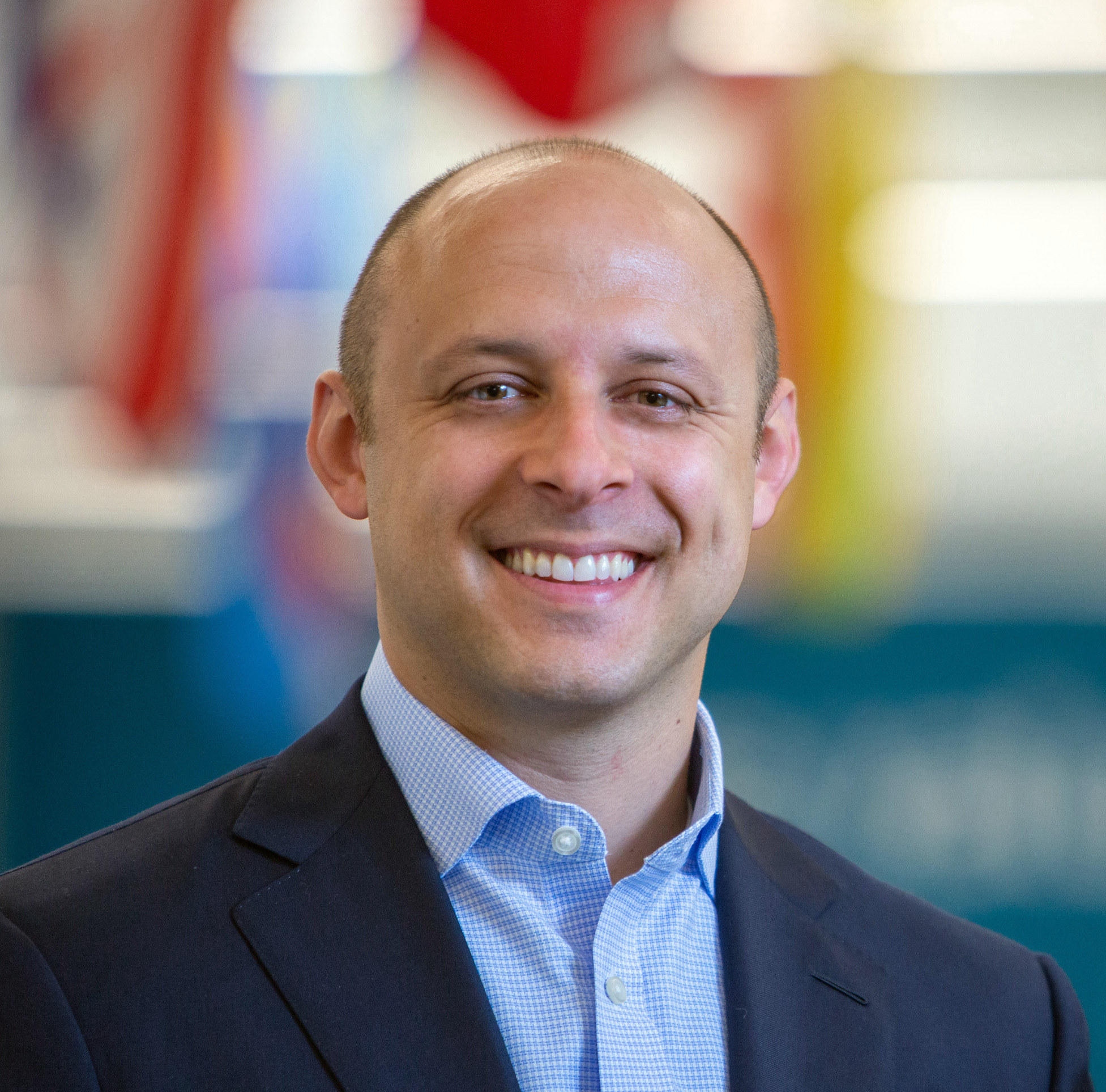
Seth Morales
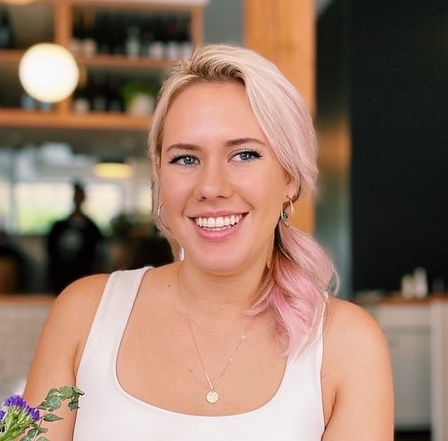
Tori Updike
Today's Guests
